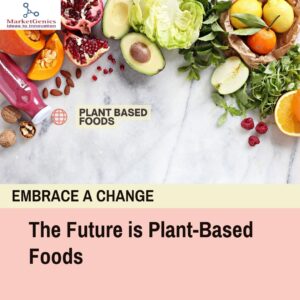In recent years, the food industry has grown rapidly with the maximum growth seen in the plant-based food industry which is popularly known as the vegan industry.
The post-COVID era saw a surge in yoga and healthy food, bringing these concepts into the limelight as trends that changed consumer preferences, health considerations, and environmental awareness. As more people turned towards the plant-based lifestyle, the changes in health, sustainability, and innovation were evident. The reasons behind this lifestyle change greatly depend on the increasing awareness of the health benefits of plant-based foods.
Numerous research studies show that a diet rich in fruits, vegetables, pulses, grains, nuts, and legumes can reduce the risk of chronic diseases such as heart attacks, diabetes, and certain cancers. Plant-based foods are lower in saturated fats and cholesterol, making them more appealing to those looking to improve their overall health and well-being.
Moreover, consumers are now prioritizing whole, minimally processed foods over heavy animal-based products. This shift in lifestyle has led to a growing interest in nutrient-rich options that are not only healthy but also sustainable. As a result, more and more individuals are turning to plant-based alternatives to meet their dietary needs without sacrificing flavor or satisfaction.

If we look at the plant research, lets take a simple example. Chia seeds have more calcium content than milk or meat. For instance, 100 grams of chia seeds contain about 631 milligrams of calcium which means that a typical serving of chia seeds (about 3 tablespoons or 45 grams) provides roughly 233 milligrams of calcium, which is equal to the calcium content in a glass of milk. Meat is not even a significant source of calcium. While certain fish like sardines and salmon do contain some calcium, they generally do not match the calcium content found in chia seeds.
Additionally, meat doesn’t have a natural taste like plant-based foods; it is only the spices that add to its flavor. Now, when we look at protein content—which is a highly discussed topic—wheat, soy, chickpeas, and lentils have more protein than meat alone.
In the past, the reason people were choosing meat was calcium, protein and taste. Now, they have realised that it has none.
As more people become aware of climate change and sustainability, an increasing number are shifting towards healthier options. Plant-based foods are also better for the environment, as the meat and dairy industries are major contributors to greenhouse gas emissions, deforestation, and water pollution. The production of plant-based foods requires fewer resources compared to animal products, making them a more sustainable choice. This growing awareness is driving innovation within the food industry, with many big and small companies investing in the development of eco-friendly food options that align with consumer needs.
According to recent reports, the global plant-based food market is subjected to reach $74.2 billion by 2027.
If we talk about India, the global plant-based food market is projected to grow significantly, with an expected compound annual growth rate (CAGR) of around 19.4% from 2024 to 2030.
This will lead to a culinary revolution and market growth for plant-based foods in India. The availability of innovative products, such as plant-based meats and dairy substitutes, has made it easier for consumers to incorporate plant-based options into their diets. From the current scenario and market trend, it is evident that the food industry has changed, is shifting and transforming.
The rise of plant-based foods is a multifaceted phenomenon driven by health awareness, environmental concerns, and culinary innovation. As more people discover the benefits of incorporating plant-based foods into their daily diets, the food industry is responding with a diverse array of products that cater to this changing landscape. This shift not only reflects a growing commitment to personal health but also a collective effort to create a more sustainable and rewarding food system. As the trend continues to evolve, the future of food looks greener than ever.


MarketGenics India is a MRSI certified company.
Send us your resume at
info@marketgenics.co
© 2025 MarketGenics India Pvt Ltd.; All rights reserved